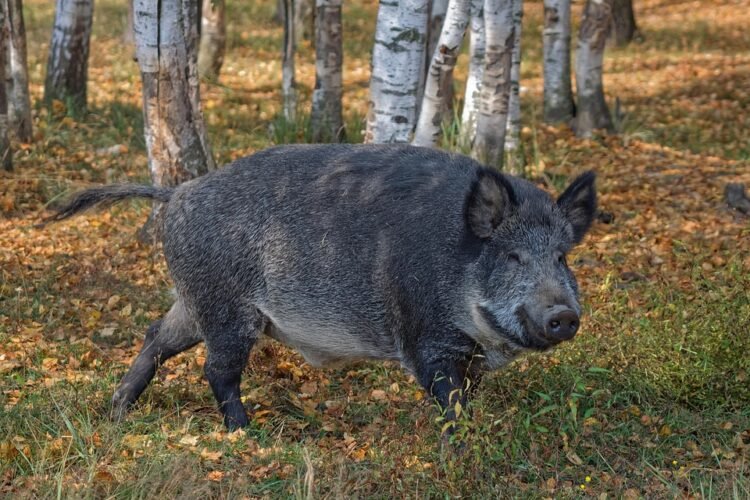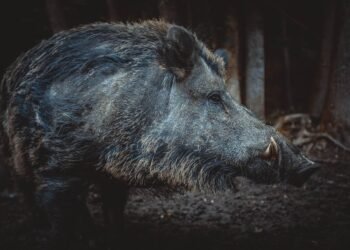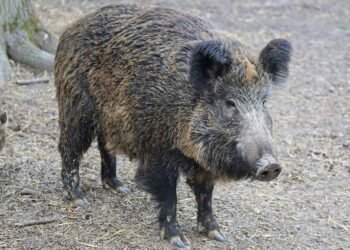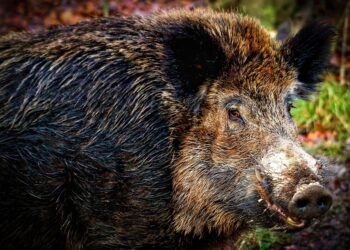Surviving the Charge: Expert Tips on Handling a Wild Boar Encounter
Encountering a wild boar can be a terrifying experience, especially if the animal feels threatened and decides to charge. These powerful creatures are known for their aggressive behavior and sharp tusks, making them a formidable opponent in the wild. However, with the right knowledge and preparation, you can increase your chances of surviving a wild boar encounter unscathed. In this article, we will provide expert tips on how to handle a wild boar encounter and stay safe in the great outdoors.
Understanding Wild Boar Behavior
Before we delve into tips on handling a wild boar encounter, it’s important to understand the behavior of these animals. Wild boars are omnivorous creatures that are highly adaptable and can be found in a variety of habitats, including forests, grasslands, and wetlands. They are known for their keen sense of smell and hearing, which helps them forage for food and detect potential threats.
When wild boars feel threatened or cornered, they may exhibit aggressive behavior, such as charging, snarling, and displaying their tusks. It’s important to remember that wild boars are not inherently aggressive towards humans, but they will defend themselves if they feel threatened or cornered. Understanding their behavior can help you anticipate their actions and react accordingly.
Expert Tips on Handling a Wild Boar Encounter
1. Stay Calm and Avoid Sudden Movements
If you encounter a wild boar in the wild, it’s important to stay calm and avoid making sudden movements. Sudden movements can startle the animal and trigger its aggressive behavior. Instead, try to remain still and calm, while slowly backing away from the wild boar. Avoid making direct eye contact with the animal, as this can be perceived as a threat.
2. Create Distance and Give the Boar Space
Creating distance between yourself and the wild boar is crucial for your safety. Try to slowly back away from the animal while maintaining a safe distance. Giving the boar space allows it to feel less threatened and reduces the likelihood of it charging. Remember, wild boars are protective of their territory and may charge if they feel that you are encroaching on their space.
3. Do Not Run or Climb a Tree
Running away from a wild boar or attempting to climb a tree is not a recommended course of action. Wild boars are fast runners and can easily outrun a human. Climbing a tree may also not be a safe option, as wild boars are capable climbers and can cause injuries if they decide to follow you up the tree. Instead, focus on creating distance and slowly backing away from the animal.
4. Make Yourself Look Bigger and Loud
If a wild boar continues to approach you, try to make yourself look bigger and louder. Raise your arms above your head, wave them around, and make loud noises to intimidate the animal. Wild boars are more likely to retreat if they perceive you as a larger and more threatening presence. However, avoid making sudden movements or loud noises that could startle the animal.
5. Use a Deterrent if Necessary
If a wild boar refuses to back down and continues to approach you, you may need to use a deterrent to protect yourself. Pepper spray, bear spray, or a loud whistle can be effective tools for deterring wild boars. Aim the deterrent at the animal’s face or in its direction to create a barrier between you and the wild boar. Be prepared to use the deterrent if the situation escalates and the animal becomes more aggressive.
Common Questions About Wild Boar Encounters
Q: Are wild boars dangerous to humans?
A: Wild boars are generally not aggressive towards humans unless they feel threatened or cornered. However, they can be dangerous if provoked, especially during mating season or when protecting their young. It’s important to give wild boars space and avoid approaching them in the wild.
Q: What should I do if a wild boar charges at me?
A: If a wild boar charges at you, try to stay calm and slowly back away from the animal. Avoid running or climbing a tree, as these actions can provoke the boar further. Make yourself look bigger and louder to intimidate the animal, and use a deterrent if necessary to protect yourself.
Q: How can I prevent a wild boar encounter?
A: To prevent a wild boar encounter, make noise while hiking or camping in wild boar territory. Wild boars have keen hearing and will likely avoid areas where they hear human activity. Avoid feeding wild boars or leaving food scraps that could attract them to your campsite.
Conclusion
Encountering a wild boar in the wild can be a thrilling but potentially dangerous experience. By understanding wild boar behavior and following expert tips on handling a wild boar encounter, you can increase your chances of staying safe in the great outdoors. Remember to stay calm, create distance, and make yourself look bigger and louder if a wild boar approaches you. By being prepared and knowing how to react, you can navigate a wild boar encounter with confidence and emerge unscathed.







